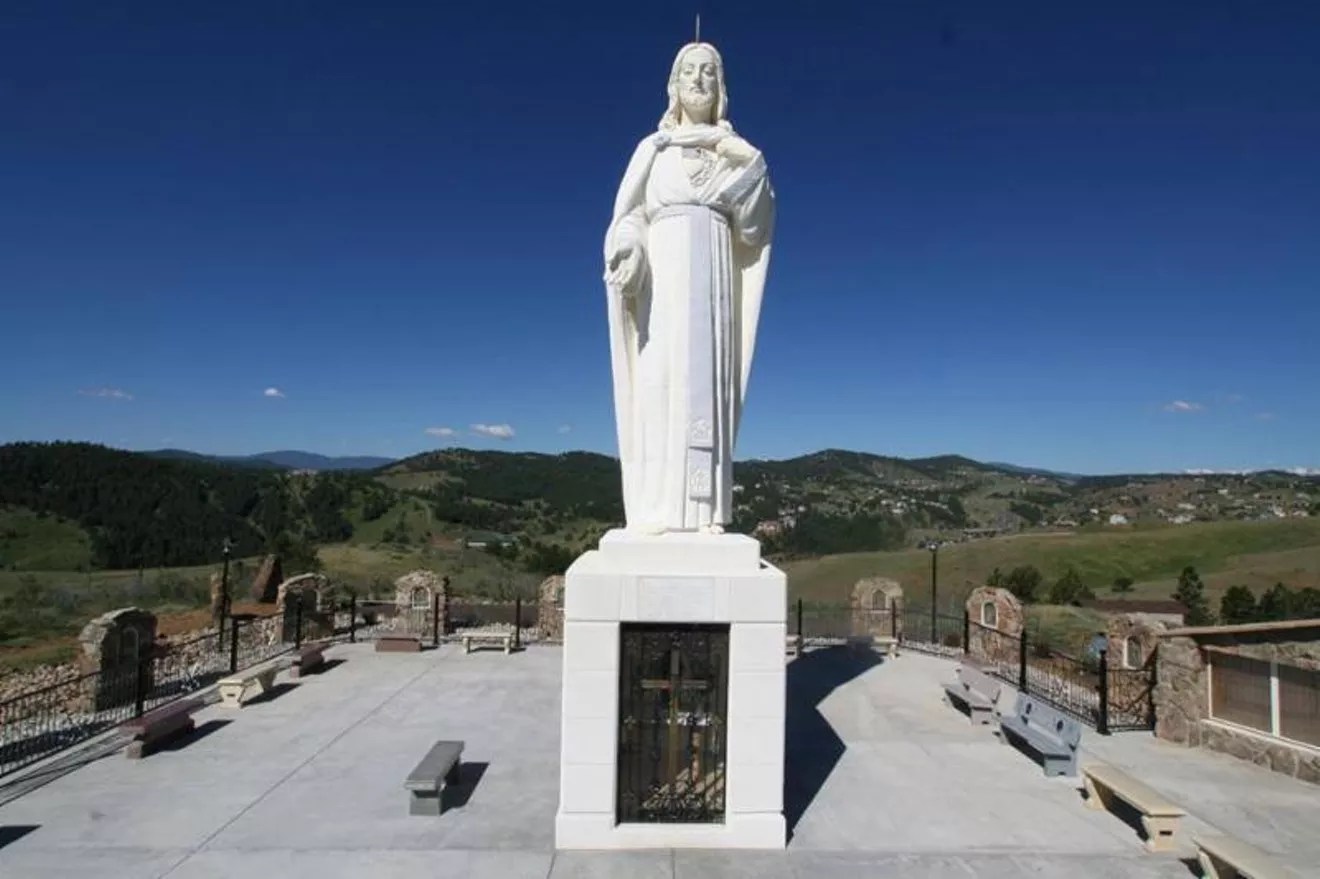
Sean Cronin

Audio By Carbonatix
Today is Columbus Day in those states that still celebrate the federal holiday on the second Monday of October.
Colorado is no longer one of them, even though this was the first state to officially observe Columbus Day, making it a holiday in 1907 at the urging of Angelo Noce, an Italian immigrant who was the founder of Colorado’s first Italian newspaper, La Stella. Soon many other states followed suit. In 1937, after heavy lobbying from the Knights of Columbus, President Franklin Roosevelt made October 12 a holiday honoring Columbus; the second Monday in October became a formal federal holiday in 1968.
But Columbus soon fell out of favor. After several earlier attempts, Colorado lawmakers finally voted to abolish Columbus Day early in the 2020 session, and on March 20 of that year, Governor Jared Polis signed a law officially abolishing the holiday in this state. Instead, on the first Monday of October, Colorado now observes Frances Xavier Cabrini Day, honoring Mother Cabrini, the Italian immigrant whose reputation is a lot cleaner than that of Columbus. Here in Colorado, she established a home for orphans; she was the first American to be canonized, in 1946 by Pope Pius XII, and named the patroness of immigrants in 1950.
She also got a lovely shrine on Lookout Mountain.

Mother Cabrini is honored with a Colorado holiday.
mothercabrinishrine.org
For years, Denver was the site of protests over Columbus Day, with organizers arguing that the explorer was no one to honor. Glenn Morris, currently director of the University of Colorado Denver’s 4th World Center for the Study of Indigenous Law and Politics, was active in those demonstrations and summed up the objections with this: “First, it is a holiday that celebrates Columbus, who was an African slave trader and who then also began the genocide against Indigenous peoples in the Caribbean. He deserves no holidays, statues, or celebrations. Second, Columbus Day celebrates the invasion and colonization of the Americas, through the Doctrine of Christian Discovery, which is a U.S. legal doctrine that justifies the theft of Indigenous peoples’ territories and the destruction of Indigenous nations to the present time.”
The Rise of Indigenous People’s Day
In ending the observation of Columbus Day, Colorado joined twelve other states as well as Washington, D.C., which had already dropped the federal holiday; today, only half of the states mark Columbus Day. Some have officially replaced it with Indigenous People’s Day; on October 11, President Joe Biden proclaimed October 14, 2024, Indigenous Peoples’ Day, a declaration that falls short of making it an official federal holiday. “I call upon the people of the United States to observe this day with appropriate ceremonies and activities,” he said. “I also direct that the flag of the United States be displayed on all public buildings on the appointed day in honor of our diverse history and the Indigenous peoples who contribute to shaping this Nation.”
Colorado was decades behind Denver in dumping Columbus Day, which in 2001 switched it out for César Chávez Day, now an official city holiday on the last Monday of March. Because of that, when then-Denver City Councilman Paul Lopez offered an ordinance in 2016 making the second Monday of October Indigenous Peoples’ Day in Denver, it did not come with any official holiday perks.
That changed last year, when Denver City Council voted to make Indigenous Peoples’ Day an official city holiday. “The Denver City Council recognizes that the Indigenous Peoples have lived and flourished on the lands known as the Americas since time immemorial, and that Denver and the surrounding communities are built upon the ancestral homelands of numerous Indigenous people, to include two land-based sovereign nations, 49 additional Tribes with legal and historic standing, and is home to the descendants of approximately 150 Tribal Nations,” according to the Denver website.
Denver will hold its first Indigenous Peoples’ Day celebration from noon to 6 p.m. on Monday, October 13, in City Park. All non-essential city services are on holiday schedules, and the Denver City Council meeting is moved to Tuesday, October 14.
Several other local governments, including Boulder County and the cities of Boulder, Golden and Pueblo, also recognize Indigenous Peoples’ Day, and their administrative offices are closed today, too.
What’s Closed Today in Colorado
Thanks to President Donald Trump, Columbus is getting a rebrand. On October 10, the White House sent out a long defense of Columbus, with Trump’s proclamation declaring this: “Outrageously, in recent years, Christopher Columbus has been a prime target of a vicious and merciless campaign to erase our history, slander our heroes, and attack our heritage. Before our very eyes, left-wing radicals toppled his statues, vandalized his monuments, tarnished his character, and sought to exile him from our public spaces. Under my leadership, those days are finally over — and our Nation will now abide by a simple truth: Christopher Columbus was a true American hero, and every citizen is eternally indebted to his relentless determination.”
Whether you consider today Indigenous People’s Day, Columbus Day or no holiday at all, the second Monday of October remains a federal holiday, one of eleven official days when non-essential federal workers are off, banks are closed and there is no postal delivery.
Most non-government business offices remain open, though, as does Colorado government, since it marked Mother Cabrini Day last Monday.
Goodbye, Columbus.
This story has been updated from a version originally published in March 2020.